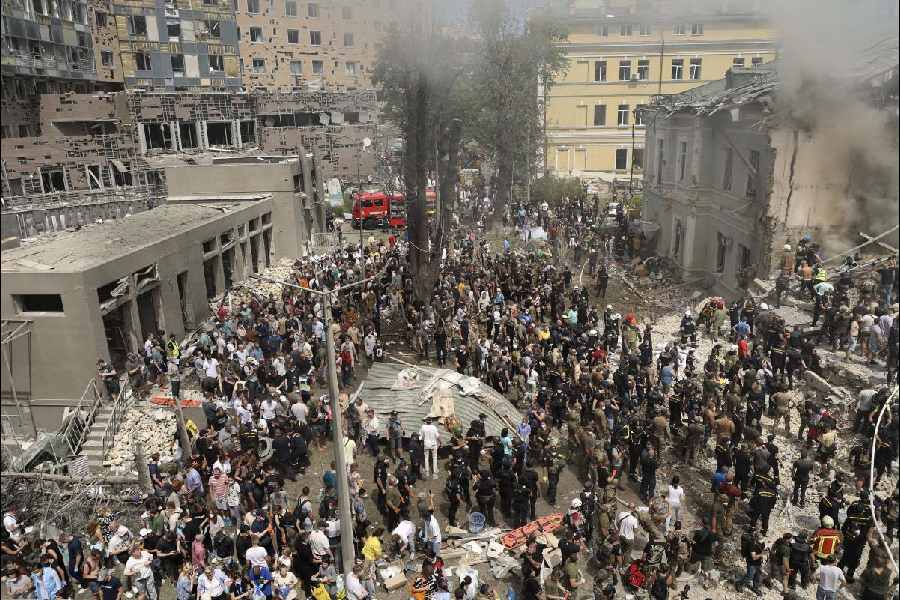In the Russian city of Kursk, several dozen miles from the heart of the fighting, Ukraine’s surprise thrust into Russia is not visible even as smoke on the horizon. But the scars of its impact are impossible to miss.
More than 1,30,000 people, according to the Russian authorities, have fled border areas or been evacuated from them since Ukrainian forces began their incursion on August 6. Many have found themselves in this regional capital, a city of about a half-million.
During a recent visit, people awaited in long lines for help with accommodation and other basic necessities like blankets. They jostled for position and sometimes shoved, but they did not move when sirens wailed repeatedly, warning of a potential drone or missile attack.
Many walls bore posters seeking word of loved ones who lived in the path of the Ukrainian incursion. Some had been placed by Lyubov Prilutskaya, 36, a Kursk resident who has lost contact with her parents in Sudzha, a town six miles from the border that Ukraine now says it fully controls.
“They didn’t want to leave,” she said. “And then it was too late.”
Others had escaped, Prilutskaya said, because they “left the territory themselves,” before any official warning or help with evacuation. She learned of the danger looming for her parents only when one of their neighbours called, asking whether she knew of a place to stay in Kursk.
“Why didn’t the top react?” she asked. “Why didn’t they tell people?”
Many of those who fled the border areas spoke of shock and confusion.
Alesya Torba, 41, from Kasachya Loknya, a village near Sudzha, said that on August 5, “such shelling began that it was no longer possible to stay”.
Her 18-year-old daughter, Albina, had given birth the day before, she said — to a girl, Sonya — after being taken to Kursk in an ambulance. Torba herself left the day the incursion began; she saw fires and wrecked cars on the road out.
Her grandmother, uncle and aunt were still in the village, and out of contact, along with her dogs, cats and chickens.
“Probably there will be nothing to return to,” she said.
Individuals and organisations in Kursk have scrambled to help with the panicked influx.
Natalia Chulikova, the director of House of Good Deeds, a local charitable group, said 15,000 families had passed through its doors. “We need food, we really need it,” she said. “And everyone asks for pillows,” she added. “They fled from home without anything.”
Ivan Kruitikovo, who said he had served for four months with a Russian private military force near Kherson in southern Ukraine, has turned his boxing club in Kursk into a temporary shelter.
He has been expecting something like this attack for more than a year, he said, adding: “A lot of people still do not understand the overall seriousness of what is happening.”
New York Times News service










